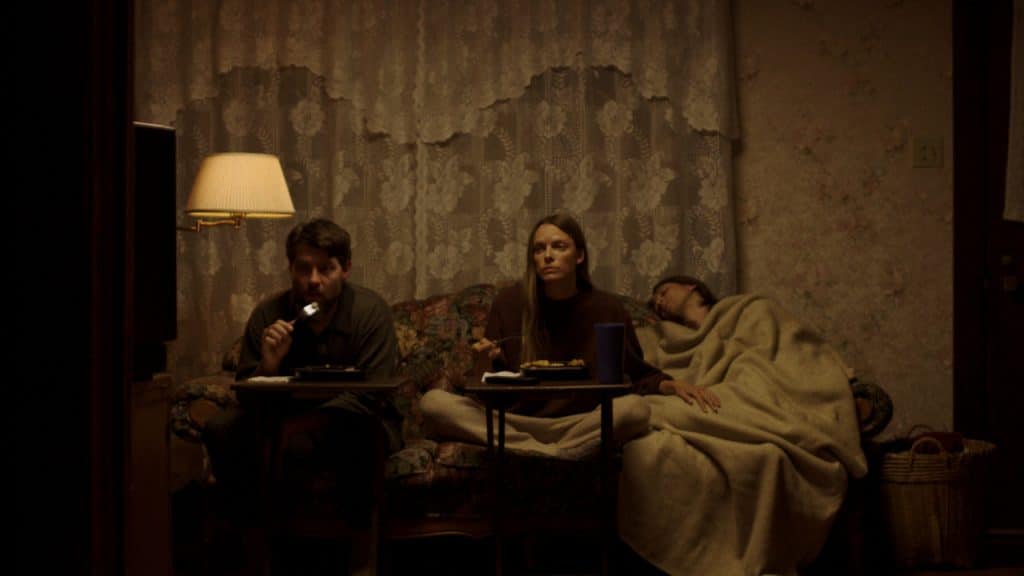Read also:
How to Watch FX Live Without CableHow To Watch AMC Without CableHow to Watch ABC Without CableHow to Watch Paramount Network Without CableThe New York-based Tribeca festival roars back to post-lockdown life with its usual solid lineup of future award winners and indie gems.
While the pandemic didn’t put a complete halt to the film festival circuit, of necessity festival programmers were forced to do complete overhauls, creating user-friendly streaming platforms in just a few months. This year’s Tribeca Festival, after having to cancel entirely in 2020, is the first festival to open back up for in-person screenings, offering a hybrid selection of both theater runs and streaming access. While it was not without its bumps, 2021’s offerings are especially strong, particularly in documentaries and horror. The movies may not quite be back, baby, but they’re getting there.
Though you should definitely check out our coverage of some of the bigger buzz titles, here’s a brief overview of some of the hidden gems at Tribeca:
Roaring 20s (dir. Elisabeth Vogler): We may soon have our fill of pandemic-themed media (please, filmmakers, just give us a little time to recover), but if someone absolutely has to make a movie about COVID-19, it might as well be Elisabeth Vogler’s Roaring 20s. Shot in documentary style, it tracks a number of people as they walk through the streets of Paris, just starting to wake up after lockdown and still far too quiet. The audience briefly gets to know a pair of teenage shoplifters, a runaway bride, and a man who tells his friend how pandemic boredom led to he and his partner dabbling in amateur porn, among others. With its lack of conflict and action (it’s literally just people walking and talking), Roaring 20s may sound like a bit of a slog, but it’s unexpectedly sweet and fascinating, a true slice of life film at a time when life has been irrevocably changed.

Though the mood in Roaring 20s is light and hopeful, the pandemic still casts a shadow over everything, as the characters speak about embracing their art, trying to date again, and quitting their jobs, as part of the new normal. It’s a collection of small beautiful moments, ending with all the characters converging on the same park at the same time and singing together. “Feels good to be here, doesn’t it?” one man asks, and you know, most of the time, it does.
Bitchin’: The Sound and Fury of Rick James (dir. Sacha Jenkins): I’m not going to pull that tiresome “You kids today have never heard of” nonsense with Rick James. Unless you’re still high school age, it’s likely that you have some familiarity with who he was, either through the ubiquitous Chappelle Show sketch (which James himself had a love-hate relationship with), or his smash hit “Superfreak,” a staple of classic radio and Spotify 80s dance mixes. Bitchin’: The Sound and Fury of Rick James seeks (and mostly succeeds) to fill in the blanks of the musician’s life around those pop culture touchstones.

The documentary (which will air on Showtime later this summer) competently hits all the usual beats of musical bios–the difficult childhood, the climb to success, the dangers of excess, the inevitable fall from glory–while also focusing on some of the lesser known aspects of James’ career, such as his stint as lead singer in the Rolling Stones-style pop group The Mynah Birds, featuring none other than Neil Young on guitar. It also gives him his due as a formidable producer, instrumental in the rise to fame of R&B singer Teena Marie (and producing Eddie Murphy’s “Party All the Time,” but it only spends maybe a minute on that). James was so versatile, talented, smart and funny, that it makes his legendary drug-fueled implosion all the more tragic. Despite the involvement of James’ daughter and brother in it, Bitchin’ pulls no punches in depicting how James was the architect of his own destruction, fueled with a toxic mix of ambition and insecurity. It’s like an rated R Behind the Music.
Shapeless (dir. Samantha Aldana): You want body horror? Here’s some body horror, based in all too bleak reality. Ivy (Kelly Murtagh, who co-wrote what feels like a very personal script) is a struggling New Orleans lounge singer, trying desperately to earn more than indifferent acknowledgment from her audience. Seemingly without real friends or family, Ivy suffers in secret from bulimia, an illness that quickly takes over her entire life, to the point where she hallucinates monstrous changes in her body. First, the visions frighten her, but eventually they bring an eerie sort of comfort.

Though Shapeless screened as part of Tribeca’s “Midnight” series, horror fans might find it a bit of a slow burn, without any genuine scares. For viewers who have suffered from an eating disorder, however, it cuts deep. There’s no aspect of the illness that isn’t viscerally depicted — the secrecy, the frantically trying to explain to a nosy cashier why you’re buying so much junk food, the horror of accidently clogging a sink with your, um, debris — and yet none of it is lurid or played for shock value either. What it gets most right is the sense of isolation having an eating disorder causes. We don’t know if Ivy has pushed her family and friends away by choice, or they’ve abandoned her because of her illness, but she’s alone now, and it’s palpable. You don’t need literal monsters to emphasize the bleak terror of that.
My Heart Can’t Beat Unless You Tell It To (dir. Jonathan Cuartas): Lurking in Tribeca’s lineup almost unnoticed was Jonathan Cuartas’ My Heart Can’t Beat Unless You Tell It To, a unique and eerie horror/domestic drama about the lengths people will go to protect their loved ones. Patrick Fugit, a long way from Almost Famous, plays Dwight, who, along with his sister Jessie (Ingrid Sophie Schram), resort to horrifying means to care for their sickly younger brother, Thomas (Owen Campbell). They lure itinerant people back to their isolated home, kill them and drain their blood, the only thing Thomas can eat, and the only thing that seems to keep him alive. Though Jessie is grimly determined to keep things as they are, with no interference from outsiders, a guilt-stricken Dwight is desperate to be free of the situation, and of Thomas.

Though Thomas is by all appearances a vampire, no one actually uses that word, and it’s left ambiguous as to whether or not he’s really sick, or has merely managed to bend Dwight and Jessie to his will. He’s at times innocent, and others creepily sly, which adds to the overall sense that his older siblings are hopelessly trapped in their situation. My Heart Can’t Beat Unless You Tell It To is both unsettling, and sad, reminiscent of the chilly desolation of Let the Right One In, and bolstered by excellent performances, particularly Fugit, who plays Dwight as resigned, resentful, terrified and naive at the same time. Dwight might be one of the most sympathetic serial killers ever committed to film.
The movie is economical in plot development: we don’t know how long Dwight and Jessie have been taking care of Thomas, or what happened to their parents. Leaving the audience to fill in the blanks makes for a more nightmarish experience, however, particularly since the majority of the action takes place in the siblings’ dim, dreary little house, where Dwight and Jessie play the reluctant parents, and Thomas is their child, always needy, and always hungry.